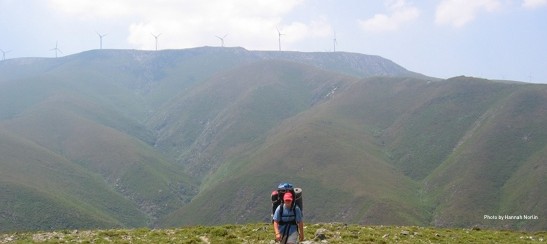The Mentality to Climb the Mountain
With longer days and warmer temperatures, a wide variety of outdoor activities are available to us in the Pacific Northwest. We can run longer, swim further, hike beyond. Going for more requires higher levels of endurance, which involves a high level of ability, but also the need for a solid approach to your mental edge.
Recently, a friend relayed a story about a group climbing Mt. Rainier. It was incredibly difficult and more than once, the group questioned whether or not to go back. Finally, the group made it — or they thought they had; they actually were standing on the false summit. Upon realization that there was just a bit longer, everyone except one trudged on for another 15 minutes to get to the true summit. But that one person just didn’t have it in him to stick with it just a little bit longer. His mental edge evaporated at the final moment and now he can’t truly say he climbed Mt. Rainier.
If you’re hoping to climb a mountain this summer, compete in a triathlon, or just complete the arduous hike you’ve always wanted to do, you’ll need to train. It’s never a good idea to attempt an endurance task completely cold; it’s a recipe for disaster.
Dealing with Fatigue and Discomfort
But even people with a high level of training will encounter fatigue and discomfort. These sensations are actually a product of your mind. What you think will influence what you experience. So a major component of preparation, in addition to your training, is developing your mental toughness.
One key component to creating your mental edge is visualization. What will it look like to reach the summit? What does it look like during the process of getting there? See yourself at the completion of the task and bank that memory for when you are in the process.
Another key component is reshaping how you feel. What is giving you fatigue? How do you define your discomfort? Is there a new way of looking at how you feel? Stop your thought process and refocus your thinking in a new direction.
It might sound silly, but talk to yourself. Positive thinking can have a powerful influence on your performance. Speak out loud; say, “You can do this!” It’ll get your through those feelings of fatigue and discomfort.
In your preparation, be sure to practice the mental component on bad days especially, because when things go wrong, you are the most prone to negativity. Work hard at diagnosing the problem and visualizing the proper technique. Refuse to get down and find the little things in your work to grasp hold of. If you can get through the difficult days, think of how effective your mental edge will be on the good days!
Just Do It
And most importantly, get out there and do it. You can read article after article about the mental side of sports and recreation, but unless you practice it continually during your training, you’ll be unprepared when it really counts.
No matter the amount of training, it’s entirely possible you’ll hit the false summit of the mountain and your mind will scream at you telling you to stop going. But a robust mental preparation can help you get to the summit! As Russell Wilson says; “separation in the preparation.”



